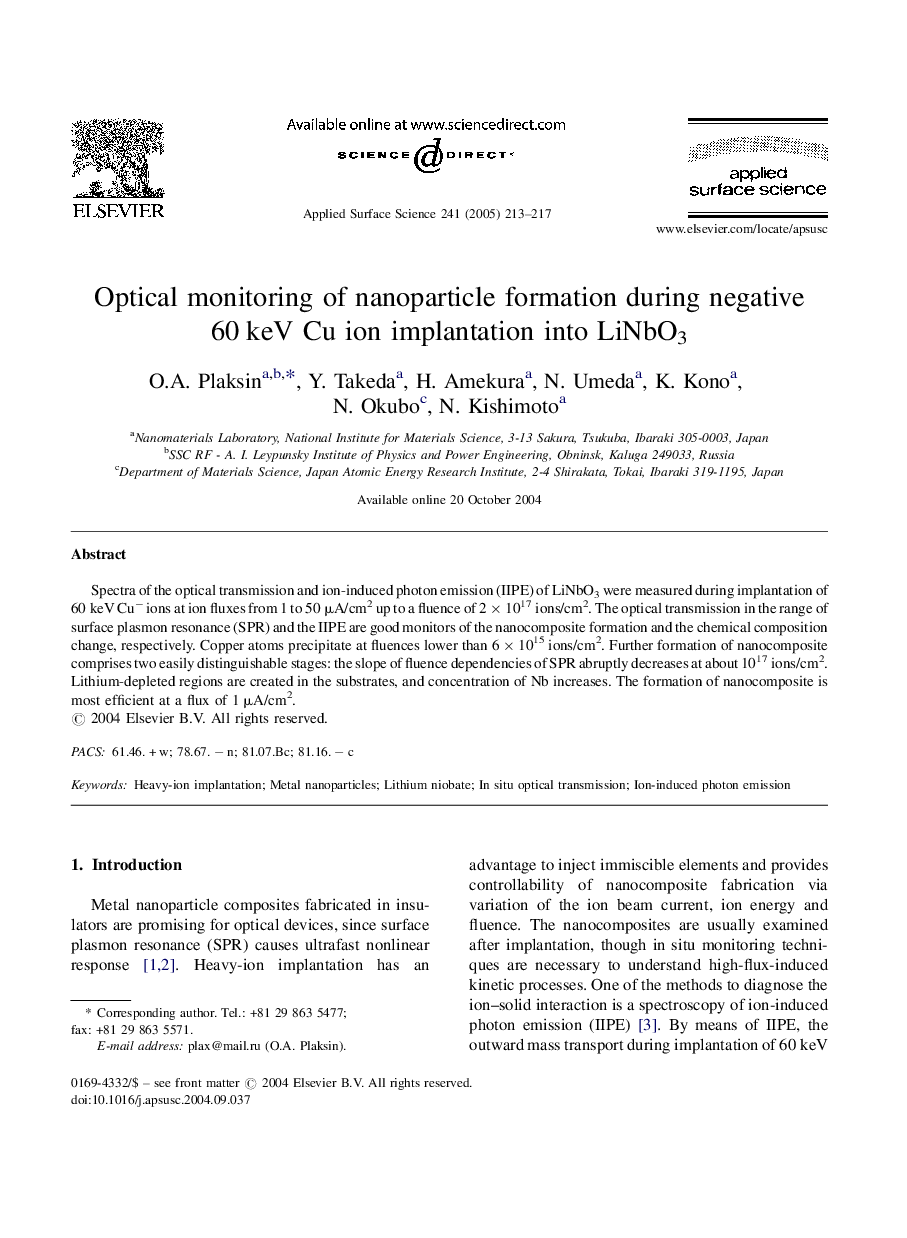| Article ID | Journal | Published Year | Pages | File Type |
|---|---|---|---|---|
| 9567541 | Applied Surface Science | 2005 | 5 Pages |
Abstract
Spectra of the optical transmission and ion-induced photon emission (IIPE) of LiNbO3 were measured during implantation of 60 keV Cuâ ions at ion fluxes from 1 to 50 μA/cm2 up to a fluence of 2 Ã 1017 ions/cm2. The optical transmission in the range of surface plasmon resonance (SPR) and the IIPE are good monitors of the nanocomposite formation and the chemical composition change, respectively. Copper atoms precipitate at fluences lower than 6 Ã 1015 ions/cm2. Further formation of nanocomposite comprises two easily distinguishable stages: the slope of fluence dependencies of SPR abruptly decreases at about 1017 ions/cm2. Lithium-depleted regions are created in the substrates, and concentration of Nb increases. The formation of nanocomposite is most efficient at a flux of 1 μA/cm2.
Keywords
Related Topics
Physical Sciences and Engineering
Chemistry
Physical and Theoretical Chemistry
Authors
O.A. Plaksin, Y. Takeda, H. Amekura, N. Umeda, K. Kono, N. Okubo, N. Kishimoto,
